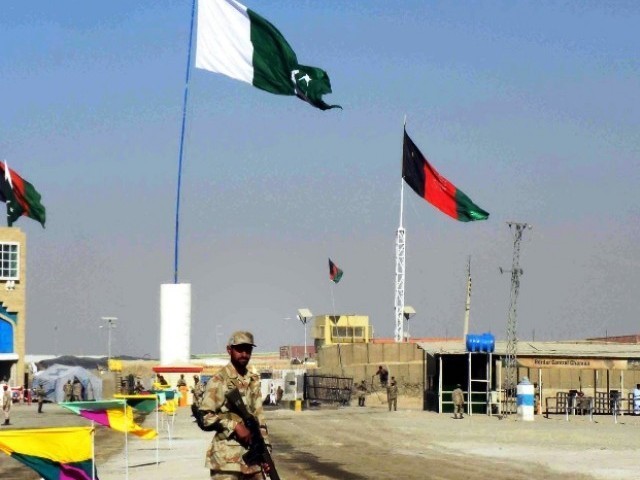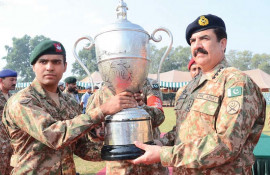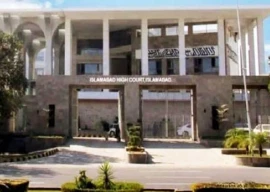
Officials have confirmed friendly countries have pushed for dialogue as it could help achieve stronger outcomes during the conference. The moot has been scheduled for December 8 and will focus on peace, security and reconciliation.
These developments come after Chinese and Turkish ambassadors met Afghan National Security Adviser Hanif Atmar in Kabul on Thursday. During the meeting, the officials discussed bilateral issues and reviewed options to bring Pakistan and Afghanistan closer.
Word of advice
In a recent transmission, Radio Azadi cited a government official in Kabul saying Chinese ambassador Yao Jing urged Atmar to advise President Ashraf Ghani to attend the upcoming conference in Islamabad.
Ghani had attended the last conference in Beijing in October 2014. However, Ghani is unlikely to participate this year owing to tense relations between Afghanistan and Pakistan.
Overall, the ambassador’s advice is not entirely misplaced. Ghani’s participation could help him personally interact with all delegates to discuss peace, security and economic development in Afghanistan.
An Afghan source based in Islamabad has not completely ruled out Ghani’s presence. However, he insists it would mainly depend on “substantial improvements in bilateral relations” and whether Pakistan is willing to address Afghanistan’s security concerns and help reduce violence in the country.
Speaking to The Express Tribune, he said the positive outcome of Chief of Army Staff General Raheel Sharif’s visit to the US will be a major ingredient in stabilising relations. During the US visit, the army chief and the American leadership reportedly agreed on the resumption of the stalled peace process. However, this predominantly depends on the Afghan government’s approach.
“It was also proposed that COAS visits Kabul before the conference,” he said. “We await details of understanding reached between the army chief and senior US officials about Afghanistan.” As per the source, Afghan Foreign Minister Salahuddin Rabbani’s participation in the conference has been confirmed. However, he said deliberations are also under way to get Chief Executive Dr Abdullah Abdullah to visit Islamabad for the conference.
A suitable alternative
Turkish ambassador Büyükelçi Ali Sait Akin also made a viable offer during a meeting with Atmar to reconcile differences with the Taliban and bring peace and stability to the region.
“He offered to host a trilateral summit of Afghanistan, Pakistan and Turkey to discuss the possibility of talks between the Afghan government and the Taliban,” National Security Council of Afghanistan Spokesperson Tawab Ghorzang said.
Pakistan, Afghanistan and Turkey had formed a trilateral group in 2007 to push for the peace process. However, the group has yet to achieve tangible progress in this regard. Akin’s offer could be viewed as a significant development at a time when Kabul is unwilling to seek Islamabad’s help in holding peace talks with the Taliban.
The suggestion came just days after China voiced its willingness to welcome the Afghan government and Taliban leaders to hold direct talks.
Earlier this week, the Taliban decided to formally appoint Sher Abbad Stanekzai as head of its political office in Qatar. Although the group has yet to come up with a clear stance on the resumption of talks, Stanekzai’s appointment will fuel the political process. Following his appointment, the group’s new chief, Mullah Akhtar Mansoor, is now considered to be in a position to strengthen its hold on political and military activities.
Taking stock
The ball is now in Afghanistan’s court. The country must choose whether it wants to heed China and Turkey’s advice and engage in political consultations or opt for a military solution.
The quest for a military solution could further worsen the situation.
At this stage, young people in Afghanistan are fleeing the country due to growing insecurity, economic hardships and lack of jobs. According to data available with UNHCR, Afghan immigrants are the second largest group of asylum-seekers – after Syrians – in Europe.
A large number of EU countries are highly concerned over the exodus of Afghans. It has also raised questions over the capability of the Kabul administration to address the looming crisis.
European countries have started publishing advertisements in newspapers in Afghanistan to discourage Afghans from seeking asylum. The Norwegian government published ads in two Kabul-based newspapers in English and Dari and warned Afghan immigrants could face expulsion if they come from places which are considered safe.
Published in The Express Tribune, November 28th, 2015.














































COMMENTS
Comments are moderated and generally will be posted if they are on-topic and not abusive.
For more information, please see our Comments FAQ